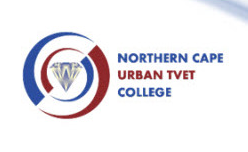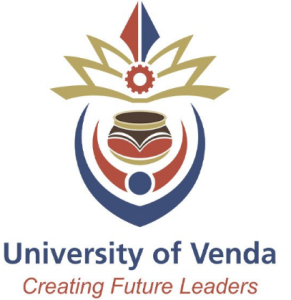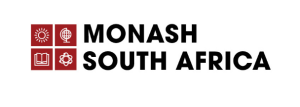The Essentials
Type of Institution: University
Fees per Year: R50 000.00 – R80 000.00
Address: Private Bag X1, Matieland, 7602, Stellenbosch, South Africa
Phone Number: +27 21 808 9111
Chancellor: Edwin Cameron
Vice Chancellor: Wim de Villiers
Number of students: 30 000+
Website: https://www.sun.ac.za/
Email: info@sun.ac.za.
Table Of Contents
- Overview
- Contact Details
- Address
- Location
- School Fees
- Courses & Programs
- Vacancies and Entry Requirements
- Logo
- Notable Alumni
- Pros and Cons
- Author’s Review
Overview
Stellenbosch University (SU) is one of South Africa’s leading research institutions, known for its academic excellence, research output, and commitment to societal impact. Situated in the town of Stellenbosch, within the Western Cape Province, it is one of the oldest universities in the country, having been established in 1918.
General
Location: Stellenbosch, Western Cape, South Africa
Founded: 1918
Language of Instruction: Bilingual (Afrikaans and English), with a growing emphasis on English as the primary medium in recent years
Student Population: Over 30,000, with a diverse body that includes international students from over 100 countries
Campus: Stellenbosch University has a picturesque campus set in the scenic wine country of the Western Cape. It also has satellite campuses, such as the Tygerberg Campus (health and medical sciences) and the Bellville Park Campus (business school).
Research Output
SU is a prominent research university, consistently ranked highly for its scientific research and innovation. It is recognized both locally and internationally for research in fields like agricultural sciences, medical sciences, engineering, and social sciences.
Rankings
Stellenbosch University consistently ranks among the top universities in Africa and is also highly regarded globally, often placed in the top 400 worldwide.
Research Institutes and Centers
SU is home to several leading research institutes, including the African Centre for HIV/AIDS Management, the Centre for Renewable and Sustainable Energy Studies, and the Stellenbosch Institute for Advanced Study (STIAS). It also has a strong focus on sustainability, biotechnology, and innovation in various fields.
International Collaborations
The university maintains partnerships with various global institutions, fostering student and academic exchange programs, research collaborations, and international networking.
Student Life
Residential Colleges: The university offers a rich residential culture with various residences (or dorms) that form part of the student experience, emphasizing inclusivity and personal development.
Cultural and Extracurricular Activities
There are numerous clubs, societies, and sports teams that cater to a wide range of interests. Stellenbosch’s location also offers easy access to outdoor activities like hiking, mountain biking, and wine tasting.
Commitment to Social Responsibility
SU has made strides in addressing its historical ties to apartheid and is actively working on transformation and inclusivity, ensuring broader access to education and fostering diversity among staff and students.
Stellenbosch University Contact Details
You can contact Stellenbosch University via their landline, email or you can visit their website for further contact details.
Phone Number: +27 21 808 9111
Website: https://www.sun.ac.za/
Email: info@sun.ac.za.
Stellenbosch University Address
Private Bag X1, Matieland, 7602, Stellenbosch, South Africa
Stellenbosch University Location
Stellenbosch University is situated in the town of Stellenbosch under the Western Cape province of South Africa approximately 50 km away from the city of Cape Town.
Stellenbosch University Fees
Stellenbosch University’s fees is currently standing at R50 000.00 – R80 000.00 per year depending on the program you are studying and the level of degree you are studying. Please contact the institution or visit them to get the latest fees structure as it can change at any time.
Stellenbosch University Courses & Programs
Stellenbosch University (SU) offers a wide range of undergraduate, postgraduate, and specialized programs across various disciplines. These programs are offered through the university’s 10 faculties.
Faculty of Arts and Social Sciences
Undergraduate Programs:
BA in Humanities
BA in Social Dynamics
BA in Language and Culture
BA in Drama and Theatre Studies
BA in Political Science
BA in Philosophy, Politics, and Economics (PPE)
BA in Journalism
BA in Visual Arts
Postgraduate Programs:
MA in African Studies
MA in Sociology and Social Anthropology
MA in History
MA in Applied Ethics
PhD in Social Sciences
Faculty of Science
Undergraduate Programs:
BSc in Biological Sciences
BSc in Chemistry
BSc in Physics
BSc in Earth Sciences (Geology)
BSc in Mathematical Sciences
BSc in Computer Science
Postgraduate Programs:
MSc in Biotechnology
MSc in Environmental Science
MSc in Physics
MSc in Mathematics
PhD in Natural Sciences
Faculty of Economic and Management Sciences
Undergraduate Programs:
BCom in Accounting
BCom in Economics
BCom in Management Sciences
BCom in Business Management
BCom in Financial Planning
BCom in Actuarial Science
Postgraduate Programs:
MCom in Economics
MCom in Development Finance
MCom in Finance
MPhil in Management Coaching
MBA (through the Stellenbosch University Business School – USB)
PhD in Business and Management Sciences
Faculty of Engineering
Undergraduate Programs:
BEng in Civil Engineering
BEng in Electrical and Electronic Engineering
BEng in Industrial Engineering
BEng in Mechanical Engineering
BEng in Chemical Engineering
BEng in Mechatronics
Postgraduate Programs:
MEng in Civil Engineering
MEng in Electrical and Electronic Engineering
MEng in Chemical Engineering
MEng in Industrial Engineering
PhD in Engineering Sciences
Faculty of AgriSciences
Undergraduate Programs:
BSc in Agriculture (Plant and Soil Science)
BSc in Food Science
BSc in Conservation Ecology
BSc in Viticulture and Oenology (Wine Science)
BSc in Forestry and Wood Sciences
Postgraduate Programs:
MSc in Plant Pathology
MSc in Sustainable Agriculture
MSc in Food Science
PhD in Agricultural Sciences
Faculty of Law
Undergraduate Programs:
LLB (Bachelor of Laws)
Postgraduate Programs:
LLM in International Trade Law
LLM in Intellectual Property Law
LLM in Environmental Law
LLM in Human Rights Law
PhD in Law
Faculty of Medicine and Health Sciences (Tygerberg Campus)
Undergraduate Programs:
MBChB (Medicine)
BSc in Physiotherapy
BSc in Dietetics
Bachelor of Nursing
BSc in Occupational Therapy
Postgraduate Programs:
MMed in Various Medical Specializations (Surgery, Pediatrics, Internal Medicine, etc.)
MSc in Physiotherapy
MSc in Nutrition
MSc in Health Professions Education
PhD in Health Sciences
Faculty of Education
Undergraduate Programs:
BEd in Foundation Phase Education
BEd in Intermediate Phase Education
BEd in Senior Phase and Further Education and Training (FET)
Postgraduate Programs:
MEd in Curriculum Studies
MEd in Educational Leadership
MEd in Educational Psychology
PhD in Education
Faculty of Theology
Undergraduate Programs:
BTh (Bachelor of Theology)
BDiv (Bachelor of Divinity)
Postgraduate Programs:
MTh in Practical Theology
MTh in Biblical Studies
PhD in Theology
Faculty of Military Science (Saldanha Campus)
Undergraduate Programs:
BMil in Military History
BMil in Organisation and Resource Management
BMil in Security and Africa Studies
BMil in Technology and Defence Management
Postgraduate Programs:
MMil in Military Strategy
MMil in Defence Management
PhD in Military Sciences
Stellenbosch University Business School (USB)
Postgraduate Programs:
Master of Business Administration (MBA)
MPhil in Development Finance
MPhil in Futures Studies
MPhil in Management Coaching
PhD in Business Management and Administration
Specialized and Short Programs
Stellenbosch University also offers various short courses, executive education programs, and certificate courses across different faculties, particularly through the USB and the Faculty of Economic and Management Sciences.
Stellenbosch University Vacancies and Entry Requirements
Stellenbosch University (SU) has specific entry requirements and a wide range of vacancies for different programs. These vary by faculty and level of study (undergraduate, postgraduate), as well as for local and international students.
Vacancies
Undergraduate Programs:
Each year, Stellenbosch University publishes a list of available programs with open seats or vacancies for undergraduate entry.
Some programs have limited capacity (e.g., Medicine, Law, Engineering) and may fill up quickly. As such, applying early and meeting the competitive entry requirements is crucial.
Postgraduate Programs:
Similar to undergraduate programs, postgraduate programs have specific vacancies, particularly in competitive courses like MBA, Medicine specializations, and Engineering. Applicants are encouraged to check with the relevant faculties for availability and requirements.
Entry Requirements
Undergraduate Entry Requirements:
National Senior Certificate (NSC): Students must have a National Senior Certificate (NSC) or equivalent qualification.
Minimum APS (Admission Point Score): SU uses a point system based on the NSC scores. The minimum APS requirement differs by program.
Example: Engineering programs might require an APS of 36 or higher.
Humanities programs could have a lower requirement, typically starting around 28-32 points.
Mathematics and Science: For programs like Engineering, Science, and Commerce, Mathematics (not Mathematical Literacy) and Physical Sciences are often required at a higher level.
Engineering: Minimum of 70% in Mathematics and Physical Science.
BCom (Actuarial Science): 80% or higher in Mathematics.
Language Proficiency: A minimum of 50-60% in English or Afrikaans is required, as these are the primary languages of instruction.
Specific Program Requirements
MBChB (Medicine): This is highly competitive, and candidates need excellent grades in Mathematics, Life Sciences, and Physical Sciences (typically 80%+).
BEng: High scores in Mathematics and Science (typically 70%+).
BCom: Minimum scores in Mathematics (60%+ for general Commerce programs, 80%+ for Actuarial Science).
Postgraduate Entry Requirements:
Honours Programs:
Generally require a relevant bachelor’s degree with a minimum of 60% average in the final year.
Master’s Programs:
A relevant honours degree or equivalent qualification.
Strong academic record in the undergraduate and honours levels, typically around 65-70% for most programs.
Specific programs like the MBA may require work experience and a GMAT score.
Doctoral Programs:
A master’s degree in a related field is required.
PhD candidates must submit a research proposal and are often required to have a supervisor secured before applying.
International Students
International students must present an equivalent international qualification (e.g., A-levels, IB diploma).
Language proficiency in English must be proven, usually through an IELTS or TOEFL score if the previous education was not in English.
Specific programs may have additional requirements for international applicants.
Additional Requirements
- National Benchmark Test (NBT):
Many programs require prospective students to write the National Benchmark Test (NBT), especially for competitive programs.
The NBT measures academic readiness for university-level study and includes components on academic literacy and quantitative literacy.
- Portfolio or Audition:
For programs in the creative arts (e.g., Visual Arts, Music, Drama), students may need to submit a portfolio of work or attend an audition.
- Interviews and Additional Assessments:
For programs like Medicine and MBA, shortlisted candidates may be called for an interview or additional assessments to determine final admission.
Application Deadlines
Undergraduate Applications: Applications typically open in March and close by June-July for most programs, though Medicine and other competitive programs may have earlier deadlines.
Postgraduate Applications: Deadlines vary, but applications for postgraduate programs are usually open later than undergraduate programs, with deadlines around September-November.
Important Notes
Programs with limited vacancies (e.g., Medicine, Engineering, Law) are often highly competitive, so meeting the minimum entry requirements does not guarantee admission.
It’s essential to apply early and ensure all required documentation (e.g., academic transcripts, NBT results) is submitted on time.
For the most up-to-date information on vacancies and specific entry requirements, it’s advisable to check Stellenbosch University’s official website or contact the admissions office.
Stellenbosch University Logo
Below is the logo of Stellenbosch University with excellent quality and it is available to download in PNG (transparent file) JPEG and PDF.
Stellenbosch University Logo
Stellenbosch University Notable Alumni
Johann Rupert – businessman and founding trustee of the Nelson Mandela Children’s Fund.
Thabo Mbeki – second president of South Africa
Naledi Pandor – South African Minister of International Relations and Cooperation (South Africa).
Jan Smuts – former South African Prime Minister.
Schalk Brits – former professional rugby union player
Sandra Botha – former Leader of the Opposition in the National Assembly for the Democratic Alliance (South Africa).
Koos Bekker – businessman, billionaire chairman of Naspers.
Sir David de Villiers Graaff – 3rd Baronet businessman.
Markus Jooste – businessman and the former CEO of Steinhoff International.
Christo Wiese – businessman, former billionaire, chairman of Shoprite (South Africa).
Jan Steyn – judge and development leader.
Beyers Naudé – theologian and anti-apartheid activist.
Jannie Mouton – businessman, founder and chairman of PSG Group.
Mark Patterson – private equity investor and founder of MatlinPatterson Global Advisors
Japie van Zyl – deputy director of the Jet Propulsion Laboratory.
Ntsiki Biyela – winemaker and businesswomen.
Stuart Abbott – rugby player.
Mari Rabie – Rhodes scholar, triathlete.
Danie Craven – prominent Rugby player and sport administrator.
Ashley Burdett – Zimbabwean cricketer
Craig Tiley – CEO of Tennis Australia and Director of the Australian Open.
Attie van Heerden – Olympian, rugby union, and rugby league footballer.
Jonathan Trott – England Cricketer.
Max Howell – Australian educator and rugby union player
Stellenbosch University Pros and Cons
Pros
Reputation and Prestige: Stellenbosch University is highly regarded as one of South Africa’s top universities and has a strong international reputation, particularly in research and academic excellence.
Academic Excellence: The university offers a wide range of high-quality programs across various fields, including Engineering, Business, Agriculture, and Humanities. Known for its strong research output and contributions to various disciplines.
Beautiful Campus and Location: The campus is located in the picturesque town of Stellenbosch, surrounded by vineyards and mountains, providing a conducive and inspiring environment for study and recreation The town itself is vibrant and offers a rich cultural and social life.
Research Opportunities: Stellenbosch University is a leader in research with several research institutes and centers focusing on fields such as biotechnology, engineering, and social sciences. The university offers numerous research opportunities for undergraduate and postgraduate students.
International Collaboration: The university has strong international links and partnerships with universities and institutions around the world, facilitating exchange programs and global networking opportunities.
Comprehensive Student Support Services: Stellenbosch University provides a range of support services, including academic counseling, career services, health services, and student organizations. Active student life with various clubs, societies, and sports teams.
Quality Facilities: The university boasts modern facilities, including well-equipped libraries, research labs, and student residences. Continual investment in infrastructure improvements.
Cons
High Cost of Living: The cost of living in Stellenbosch can be relatively high, including accommodation, food, and other expenses, which may be a concern for students, especially those from outside the region or international students.
Competitive Admission: Admission to certain programs, particularly in Engineering, Business, and Medicine, can be highly competitive, requiring strong academic performance and high entry scores.
Limited On-Campus Accommodation: There is limited availability of on-campus housing, and securing a place can be challenging for many students. Off-campus housing options can be expensive and may require additional commuting.
Transport and Accessibility: Although Stellenbosch is a small town, transportation options can be limited, and students may need to rely on private transport or shuttle services to navigate the town and surrounding areas.
Occasional Infrastructure Strain: The university may experience issues with overcrowding in certain facilities or during peak periods, such as lecture halls and libraries.
Cultural and Social Environment: While Stellenbosch is culturally rich, it is also known for being a predominantly affluent and conservative community, which may not appeal to everyone and might affect inclusivity for some students.
Language Barrier: Although English is the medium of instruction, some students may encounter language barriers or feel pressure to be proficient in Afrikaans, which is commonly spoken in the region.
Author's Review
Stellenbosch University stands out as a premier institution of higher education, renowned for its academic excellence, picturesque campus, and robust research capabilities.
The university’s reputation for delivering high-quality education across a range of disciplines, coupled with its beautiful setting in the vibrant town of Stellenbosch, provides a stimulating and inspiring environment for students.
However, prospective students should be mindful of some challenges, including the high cost of living in Stellenbosch, competitive admission requirements, and limited on-campus accommodation. Additionally, transport and accessibility issues may impact those who do not have private transportation.
Overall, Stellenbosch University offers a distinguished educational experience with numerous opportunities for personal and academic growth. Despite the challenges, its commitment to academic rigor, research excellence, and a supportive student environment make it a top choice for those seeking a prestigious education in a beautiful and dynamic setting.



